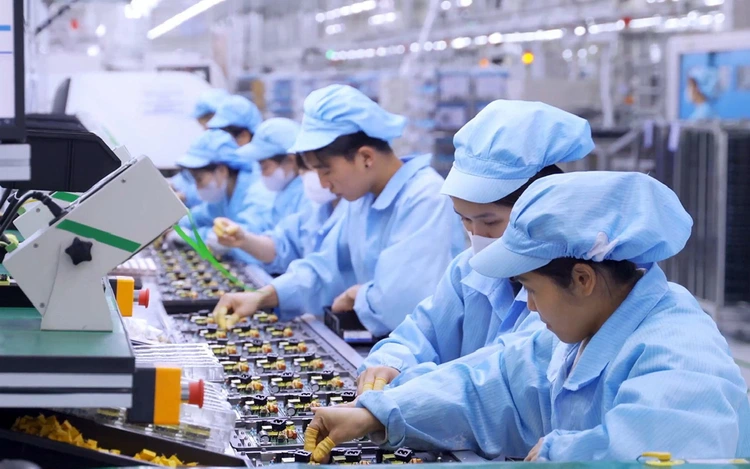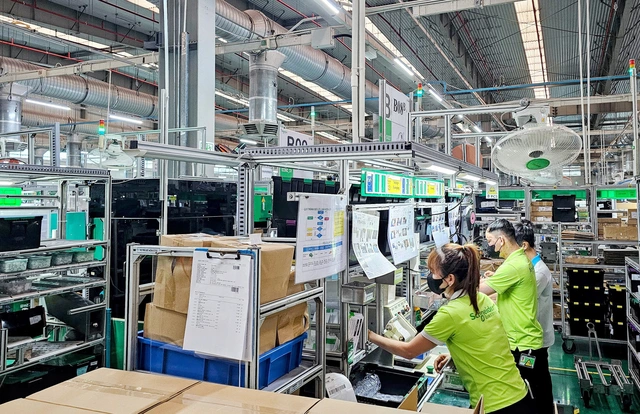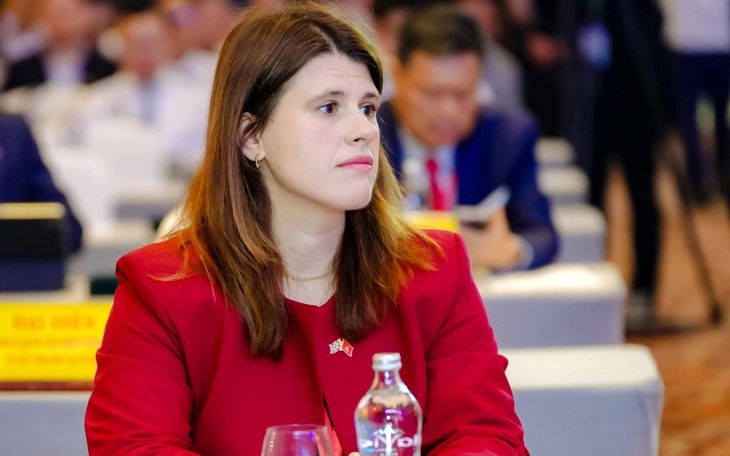
Workers at LITEON Vietnam factory. Photo courtesy of LITEON Vietnam
According to the General Statistics Office, total FDI commitments—including newly registered capital, adjusted investment, and equity contributions—reached US$18.39 billion by the end of May, a 51.2-percent increase from the same period last year.
Disbursed capital also rose eight percent year on year, totaling $8.9 billion.
Among the most notable moves was LITEON, a Taiwanese tech giant, which pledged an additional $25 million in April to expand operations in Vietnam.
Despite U.S.-China trade tensions, the company is building a new plant in Quang Ninh Province that is four times the size of its current facility in Hai Phong City.
The factory is expected to employ 20,000 workers when it opens by the end of 2026.
Henry Chien, LITEON Vietnam’s human resources manager, said the company plans to grow its workforce from 5,000 to 8,000 as part of its long-term investment strategy in Vietnam.
He cited favorable government policies, a skilled labor pool, and a stable development roadmap as key factors behind the expansion.
Amid shifting U.S. tariffs, the company has no plans to relocate and is instead focused on increasing production capacity and flexibility.
LITEON is also venturing into emerging fields such as AIoT and semiconductors.
Chien called on Vietnamese authorities to streamline administrative procedures in investment, labor, and trade, and to foster stronger connections between businesses and educational institutions to address technical talent shortages.
Park Bong Kyu, chairman of the Korea CEO Summit, said South Korean firms are increasingly looking to invest in AI, IoT, and big data solutions for smart urban planning in Vietnam, in addition to traditional sectors.

Factory workers inside an FDI enterprise in Saigon High-Tech Park. Photo: Ngoc Hien / Tuoi Tre
South Korea has invested more than $36 billion in Vietnam in areas including manufacturing, high technology, and real estate.
He urged Vietnam to accelerate the development of 5G infrastructure and digital platforms while simplifying project approval processes and improving transparency—critical steps for enabling smart-city solutions.
Vincent Pham, chairman of IOTA Capital, echoed that view, suggesting Vietnam court investors from Japan, South Korea, and Singapore for large-scale urban projects.
He noted growing interest from European firms in ventures that meet environmental, social, and governance (ESG) standards, saying there is also potential to attract capital from the Middle East.
Nguyen Van Toan, vice-chairman of the Vietnam Association of Foreign-Invested Enterprises, stressed the importance of targeting high-tech FDI that supports technology transfer and high-value job creation.
He cautioned against indiscriminate investment and recommended offering tax breaks and other incentives to link foreign investors with domestic companies, which helps lower costs and maintain quality.



Max: 1500 characters
There are no comments yet. Be the first to comment.